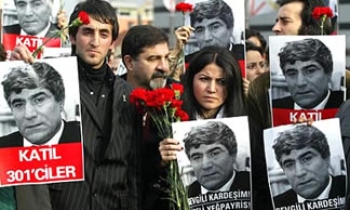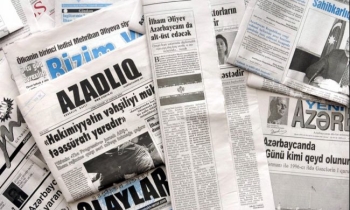SANAA, Feb 22 (Reuters) - A Yemeni editor on trial for reprinting cartoons of the Prophet Mohammed said he had done so to show Muslims how insulting they were, not to deride Islam.
Now Mohammad al-Asaadi, editor-in-chief of the English daily Yemen Observer, says Islamists could kill him for his action.
"The problem now is not the trial," he told Reuters on Wednesday from a cage in a Sanaa courtroom before the judge ordered him and two other Yemeni journalists charged with denigrating Islam to be released on bail.
"I fear for my life because the government has now given Islamists fuel for a campaign against me and the others," he said, declaring the charge against him unfair.
In Pakistan, a cleric has offered a reward for anyone who kills the 12 Danish cartoonists who lampooned the Prophet in Denmark's Jyllands-Posten newspaper in September.
Yemen ordered Assadi's paper closed and put him on trial along with Akram Sabra the managing editor of al-Hurriya weekly newspaper and reporter Yehiya al-Abed of Hurriya.
Prosecutors are also seeking the editor-in-chief of another daily, al-Rai al-Am, which was also shut down over the cartoons. They have demanded the journalists be jailed for a year or pay a fine. The trial was adjourned for two weeks.
Muslims enraged by the cartoons have rampaged in several countries, killing Christians in Nigeria, destroying Western businesses in Pakistan and torching embassies in the Middle East. More than 50 people have been killed in the protests.
In Europe, many dailies reprinted the cartoons citing freedom of expression, although the owner of Paris newspaper France Soir sacked his managing editor for doing so.
In the Middle East, governments many of which exert tight control over the media have acted swiftly against newspapers that reprinted the caricatures -- Saudi Arabia shut a newspaper this week and Jordan has put journalists on trial.
U.S.-based Human Rights Watch and other groups have condemned such measures as violating freedom of expression.
"We reject the disrespectful and prejudiced attitudes reflected in the cartoons, but governments are not entitled to imprison journalists simply because their publications are seen as offensive or disrespectful," Human Rights Watch said.
RIGHTS VIOLATED
Khaled al-Ansi of Yemeni rights group HOOD said he held the government responsible for any ill that befell the journalists.
"If I had the shadow of a doubt that they were not defending Islam then I would not support them. By putting them on trial, the government has basically issued an edict against them that militants can use," he added.
This week, prominent Yemeni cleric Sheikh Alhabib Aljifri also voiced support for all journalists who printed the cartoons with the intention to increase Muslim awareness about them.
Some Muslim leaders have tried to calm the cartoon-sparked fury, urging Muslims to boycott Danish goods, not use violence.
Mustafa Alani, analyst at the Dubai-based Gulf Research Centre, said Arab governments that prosecuted journalists over the row were being hypocritical as well as repressive.
"One the one side, they are acting as guardians of the values of society to appease the anger of their people but then you are also losing the freedom of the press," he explained.
"If you listen to one sentiment of the street, you should listen to them all, not pick and choose."









